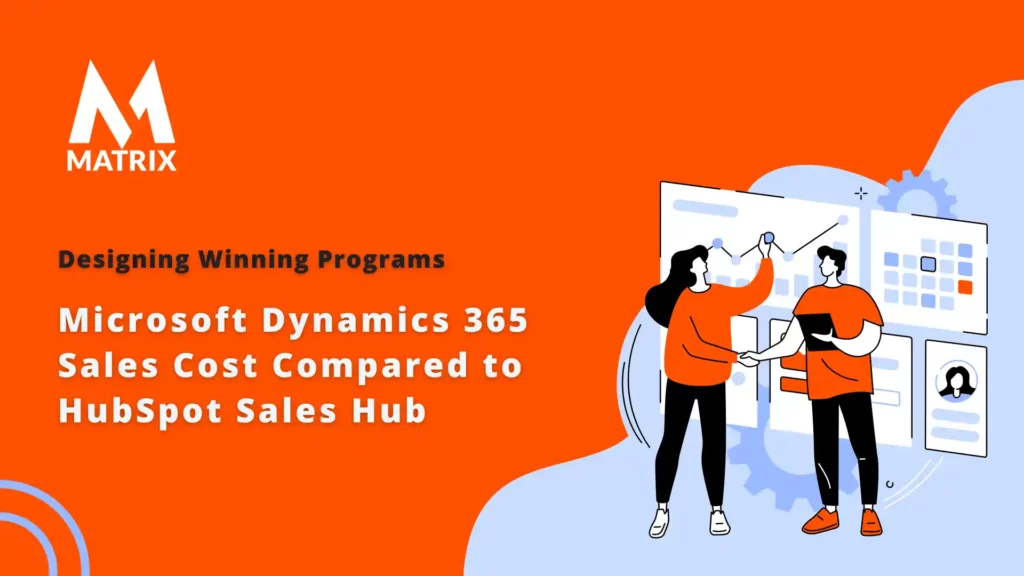Microsoft Dynamics 365 Sales Cost Compared to HubSpot Sales Hub
Learn about Microsoft Dynamics 365 Sales Cost Compared to HubSpot Sales Hub
Are you looking for a customer relationship management (CRM) software suite to help automate and customize your business operations? Microsoft Dynamics 365 Sales is one of the best CRM solutions on the market, with powerful features that can help businesses streamline their sales process.
But how much does Microsoft Dynamics CRM cost compared to HubSpot Sales Hub? This blog post will compare pricing aspects between Microsoft Dynamics 365 Sales and HubSpot Sales Hub, including setup fees, licenses, support costs, and more. We’ll also explore why pairing Microsoft Dynamics 365 Sales with HubSpot Marketing Hub can increase sales 10X. So let’s get started!
Are you looking for a CRM software suite to help automate and customize your business operations?
Microsoft Dynamics 365 Sales is one of the best CRM solutions on the market, with powerful features that can help businesses streamline their sales process. But how much does Dynamics 365 Sales cost compared to HubSpot Sales Hub?
This blog post will compare pricing aspects between Microsoft Dynamics 365 Sales and HubSpot Sales Hub, including setup fees, licenses, support costs, and more. We’ll also explore why pairing Microsoft Dynamics 365 Sales with HubSpot Marketing Hub can increase sales 10X.
Get ready to take your business operations to the next level with an efficient and effective CRM solution like Microsoft dynamics 365 CRM! With its powerful features and competitive prices compared to other options on the market, you’ll be able to maximize your ROI while improving customer relationships.
Please read our blog post now for all the details about how much it costs for Microsoft Dynamics 365 Sales compared to other solutions like HubSpot! Learn why pairing these two tools together will give you maximum results in increased sales 10X.
Stats from 2022 about CRM cost

In 2022, the cost of implementing a customer relationship management (CRM) system for businesses will continue to be seen as an attractive and cost-effective investment.
According to a survey conducted in 2021, more than 80% of companies that use CRMs experienced financial success within the first year of implementation.
Microsoft Dynamics 365 remains one of the most popular solutions on the market. This suite is known for its scalability and affordability, allowing businesses to customize their operations according to their needs.
The cost for Dynamics 365 Sales varies depending on the number of licenses needed but typically ranges from $95 to $290 per user per month. Depending on the complexity of your business operations and the customized features you require, an additional setup fee may also be required.
Compared to HubSpot’s Sales Hub, Dynamics 365 Sales provides many competitive advantages in terms of pricing. For instance, due to Microsoft’s generous licensing policy, you can save up to 50% when purchasing multiple users with extended plans compared to HubSpot’s plans.
Moreover, support costs are much lower in Dynamics 365 Sales since they offer unlimited support no matter how many licenses you purchase – while HubSpot charges extra fees based on the size of your organization and the number of users supported.
Finally, when combined with HubSpot Marketing Hub, Microsoft Dynamics 365 can increase sales by 10X or more – making it a valuable investment for any business looking to turbocharge its growth potential in 2021 and beyond.
Microsoft Dynamics 365 for finance and operations
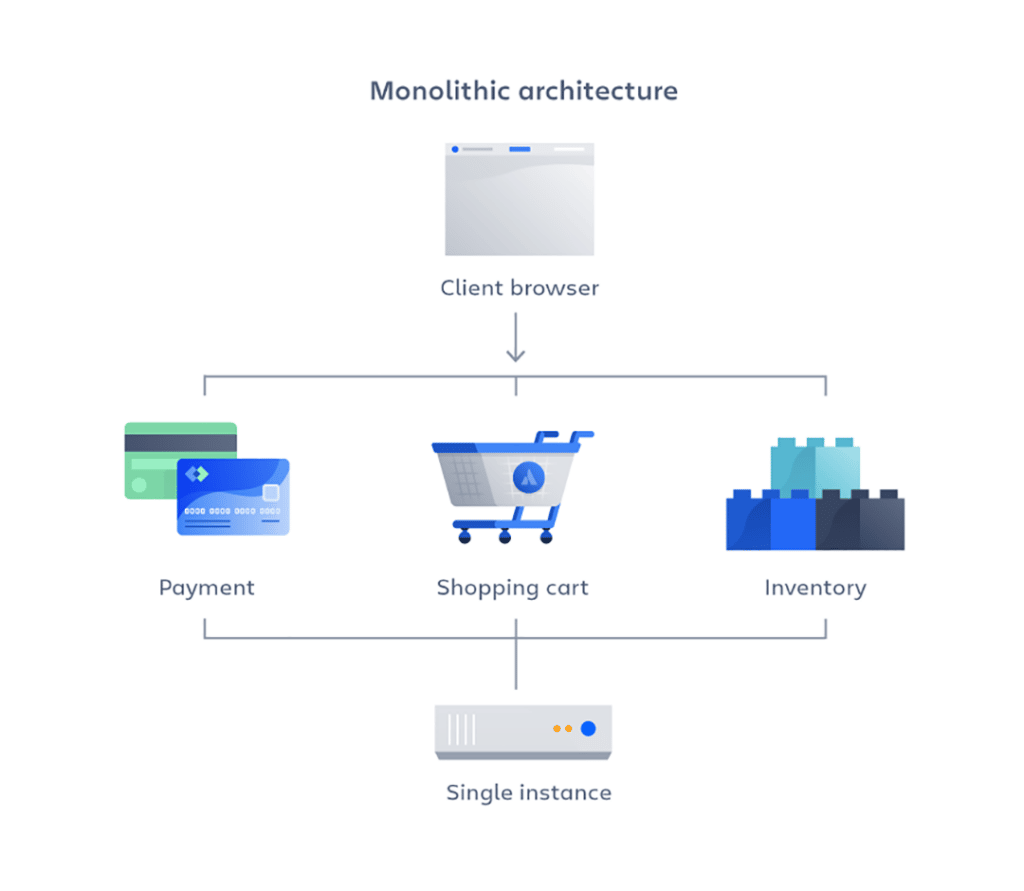
Regarding customer management, architects face a major challenge: ensuring that their CRM system is intuitive and easy for all users. This can be especially difficult when dealing with multiple user roles, as each role needs access to the necessary data and features for the system to be effective. Additionally, having a complex user interface can make it difficult for users to find the information they need or complete tasks efficiently and quickly.
To overcome these challenges, architects should ensure their CRM system is user-friendly by providing an easy-to-use interface with clear navigation. They should also ensure that the system provides features tailored to each user’s specific needs – such as access control settings that keep sensitive data secure – and customization options so users can tailor their experience to meet their requirements.
In addition, developers should ensure that the software integrates seamlessly with existing systems, such as accounting software and email marketing platforms. This will allow customers to easily track information from multiple sources without manually entering it into the CRM and reduce time spent on administrative tasks.
Finally, architects should strive for scalability in their CRM system – which means implementing features that anticipate future growth and expansion of business operations. This includes built-in features like analytics tools and reporting capabilities, which allow companies to monitor performance accurately over time and make informed decisions about how best to improve operations in the future.
Overall, designing an effective customer management system requires careful consideration of user requirements coupled with an understanding of technical limitations.
Architects in professional service firms must also consider scalability when planning a CRM implementation to maintain its usability over time as business operations expand and evolve. By focusing on these factors during design and implementation, businesses can ensure their customer management systems are efficient and cost-effective while meeting all of their current needs – as well as those of years down the line!
What are the key drivers of CRM purchases?
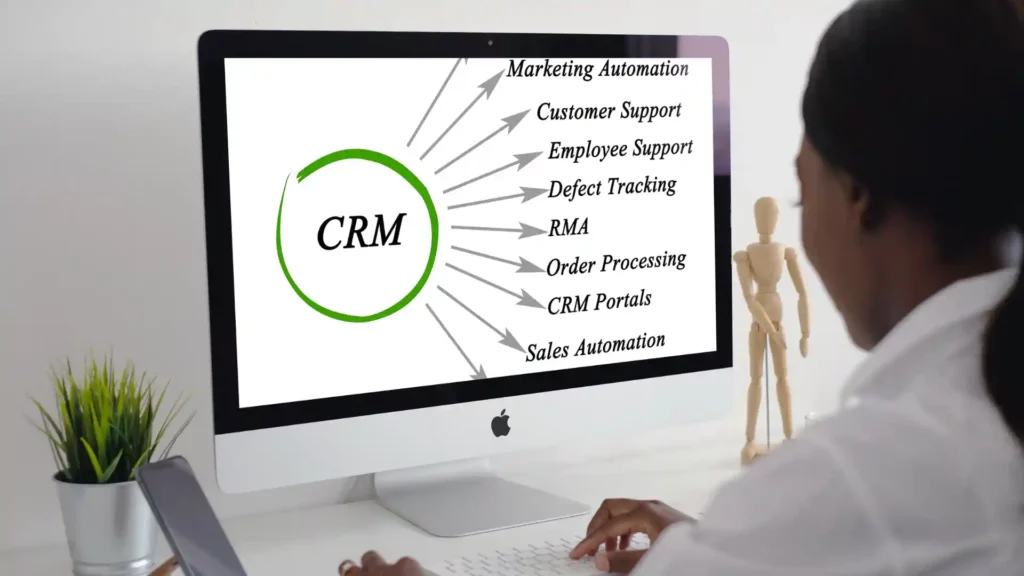
CRM purchases are typically driven by a combination of factors, including the need for improved customer relationship management, better analytics and reporting capabilities, increased scalability, integrated features, and user-friendly interfaces.
Improving customer relationship management is the primary driver of CRM purchases as businesses seek to optimize their operations and better serve their customers. Companies can manage customer data more efficiently by having an effective system, tracking customer interactions over time, and providing timely support. Additionally, with an integrated CRM system in place, businesses can offer personalized experiences to customers by leveraging automated processes and customization options.
Another key factor driving CRM purchases is the need for better analytics and reporting capabilities. By providing users with powerful analytics tools such as dashboards and reports, companies can quickly glean insights into their business performance – enabling them to make informed decisions about future strategies faster than ever before. Analytics also allows businesses to measure the effectiveness of marketing campaigns or identify areas of improvement within specific departments or teams.
Scalability is also a major driver of CRM purchases as companies often find they outgrow their existing systems due to increasing growth or shifting operations. With this in mind, developers should ensure that their chosen system has built-in features that anticipate future changes while still meeting current requirements – enabling them to keep up with demand without investing in expensive upgrades further down the line.
Integrated features are another key driver of CRM purchases, as they allow users to take advantage of multiple platforms without entering data multiple times or switching between applications manually. Companies should look for systems that easily integrate with other software, such as accounting software, email marketing platforms, Point Of Sale (POS) systems, etc., making it easy for users to access necessary information from any device or location.
Finally, user-friendly interfaces are essential when choosing a suitable CRM solution as it helps ensure that all users understand how to use the system effectively.
This includes providing clear navigation options so users can quickly find what they’re looking for; implementing intuitive search options; offering drag-and-drop options when adding new fields; color coding; providing graphical representations when appropriate; including helpful onscreen tutorials or tooltips; and making sure there’s an easily accessible help section which contains detailed instructions on how best to use each feature within the system – ensuring all employees can maximize its potential!
Who are the top 5 players of CRM platforms
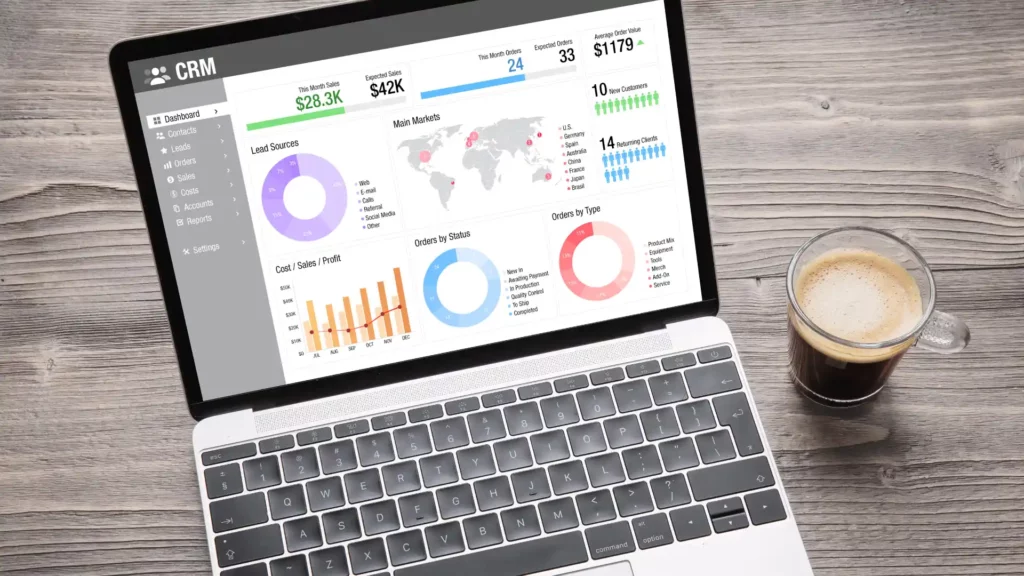
The top 5 players in the customer relationship management (CRM) platform industry are Salesforce, Microsoft Dynamics 365 Sales, Oracle, HubSpot, and Zoho. All 5 of these CRM providers offer users a powerful suite of tools to help automate and optimize their business operations.
Salesforce is currently the most popular CRM platform on the market, as it offers comprehensive contact management capabilities and a wide range of customization options. This provider also boasts an expansive ecosystem of third-party apps that integrate seamlessly with its core product – making it one of the most comprehensive offerings available to businesses today.
Microsoft Dynamics 365 Sales is Microsoft’s cloud-based customer relationship management (CRM) system for medium to large businesses. This platform features integrated tools that allow users to manage contacts, generate leads, analyze campaigns, track sales performance in real time, and much more.
Additionally, Dynamics 365 sales premium can be easily customized to fit any organization’s specific needs – making it an ideal choice for businesses seeking a scalable solution. Dynamics 365 sales professional license is needed to run in an enterprise setting.
Oracle is another major player in the CRM space with its Oracle CX Cloud Suite. This platform offers customers predictive analytics capabilities to gain better insights into their customers’ behavior; its integrated marketing automation tools give users unprecedented control over their campaigns’ outcomes.
HubSpot is another popular CRM offering thanks to its suite of integrations allowing users to pair data from multiple sources into actionable insights directly within HubSpot’s dashboard interface.
HubSpot also provides powerful marketing automation capabilities, including lead scoring tools, email marketing features, and social media integrations – enabling companies to create highly personalized experiences for their prospects and customers.
Finally, there’s Zoho – perhaps the most versatile CRM provider on the list due to its wide range of features available through its various plans, which cater specifically to small-to-medium sized enterprises (SMEs).
This platform specializes in helping SMEs optimize their customer journeys through automated processes such as web forms for capturing leads; drag & drop builders for creating landing pages; segmented email campaigns; plus many more helpful features tailored specifically towards SMEs’ needs!
All 5 providers offer unique advantages and disadvantages that must be considered before committing to one particular CRM solution – from pricing models to feature sets – but ultimately, each provider aims to help businesses increase efficiency while building stronger relationships with their customers along the way!
How Much Does Dynamics 365 Sales cost?
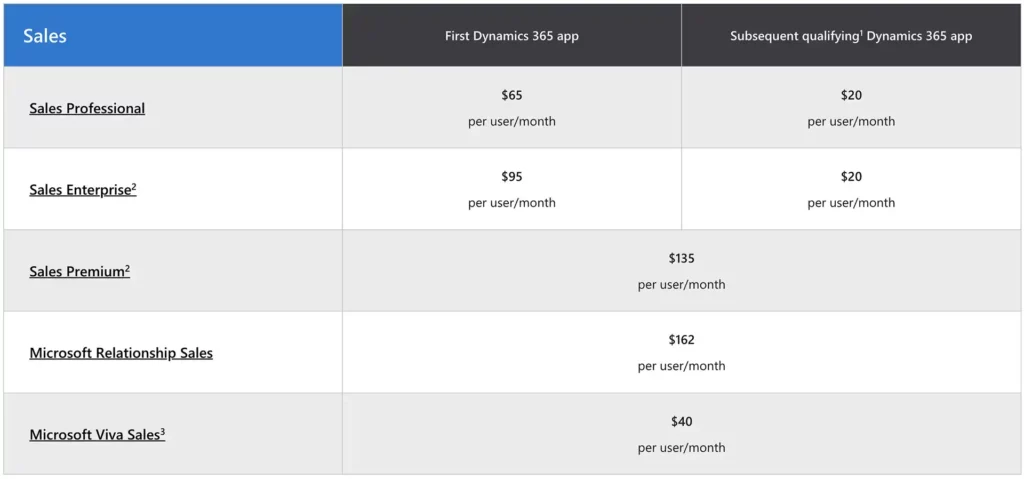
Microsoft Dynamics 365 Sales is a cloud-based customer relationship management (CRM) system for medium to large businesses. It offers users a powerful suite of tools to help automate and optimize their business operations. While this CRM platform offers numerous features that can greatly benefit organizations of any size, it is important to consider the cost of using Dynamics 365 Sales compared to other CRM solutions on the market.
Regarding pricing models, Microsoft Dynamics 365 Sales offers customers two options: subscription-based plans or pay-as-you-go. Subscription plans are the most cost-effective option for larger businesses because they provide access to all features and updates at a fixed price per user. However, smaller businesses may find more value in paying only for the features they use via the pay-as-you-go model.
In addition to these two pricing models, Microsoft Dynamics charges users setup fees and deployment costs depending on their needs and required customization levels. Furthermore, there are both license fees and support costs that need to be taken into account when budgeting for Dynamics 365 Sales.
It is also important to note that when comparing Dynamics 365 Sales with HubSpot’s Sales Hub, there are several other differences besides cost considerations. For example, HubSpot’s Sales Hub is much easier to set up than Microsoft’s offering, which requires expert knowledge and technical know-how from IT professionals. Additionally, HubSpot provides users with more automation capabilities than Dynamics365, helping customers maximize their sales process efficiency by removing manual tasks through automated workflows and predictive analytics insights.
Finally, when taking into consideration how much Dynamics 365 Sales costs compared to HubSpot’s Sales Hub – if paired with its Marketing Hub – increases sales 10X due to its comprehensive suite of marketing tools such as social media integrations, email campaigns segmentation capabilities, lead scoring tools and more – then the extra cost might be worth investing in if companies want an enhanced customer experience along with greater success in achieving their desired results!
How Much Does HubSpot Sales Hub cost?
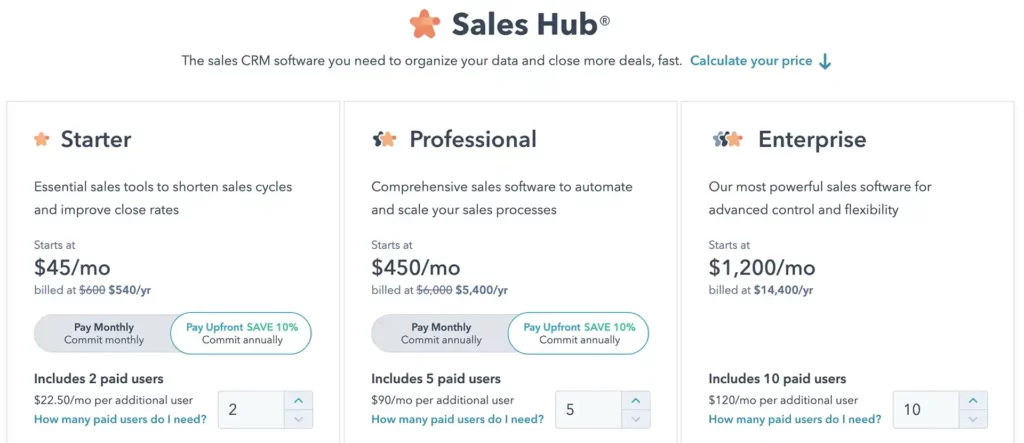
HubSpot Sales Hub is an all-in-one customer relationship management (CRM) system designed to help businesses increase efficiency and sales. Businesses can track, analyze, and manage every aspect of their sales process with this powerful CRM tool suite.
With features such as automated lead scoring, AI-powered insights, integrations with popular communication tools, and a customizable dashboard for real-time analytics – HubSpot Sales Hub provides users with a comprehensive view of the customer journey from start to finish.
Regarding pricing models, HubSpot Sales Hub offers several plans tailored to different types of businesses. For smaller teams or businesses just getting started with CRM systems, the Starter package starts at $45 per month per user.
As businesses’ needs grow, they can upgrade to more advanced packages that include additional features such as sales forecasting and reporting tools, email automation capabilities, built-in meeting scheduling options, and more – these packages range from $45 – $1,800 per month per user depending on the level of customization required by each business.
Furthermore, HubSpot Sales Hub also offers discounts for annual payments, which can provide customers with significant savings compared to monthly payment plans. Customers who commit to longer-term contracts will also benefit from even greater discounts – plus access to additional features designed to maximize efficiencies within the sales process!
Conclusion
When comparing Dynamics 365 Sales vs. HubSpot Sales Hub in terms of cost-effectiveness – it’s important to consider other factors besides price alone; such as feature sets available in each platform; setup fees & deployment costs associated with each platform; plus potential savings in time & money thanks to reduced manual input & increased automation capabilities offered by either solution.
Microsoft Dynamics 365 & HubSpot Sales Hub offer customers powerful CRM solutions that can help automate and optimize their sales process while creating highly personalized experiences for their prospects and customers. Ultimately, it’s up to businesses to decide which provider is right for them based on their needs!
How Matrix Marketing Group can help with Microsoft Dynamics 365 & HubSpot Marketing Hub
In today’s business world, companies need to be able to quickly and efficiently automate their operations to remain competitive. Microsoft Dynamics 365 Sales & HubSpot Marketing Hub offer powerful solutions to help businesses of any size grow their revenues and increase customer satisfaction.
If you’re considering using Microsoft Dynamics 365 Sales and/or HubSpot Marketing Hub for your business, Matrix Marketing Group can help. Our team of experienced digital marketing experts can assist with understanding the different platform features;
General FAQs
Are CRM systems worth the price?
Yes, CRM systems are worth the price as they help automate and optimize businesses’ sales processes, creating highly personalized experiences for their prospects and customers. Moreover, they increase efficiency by eliminating manual tasks with automated workflows and predictive analytics insights. Ultimately, the price of a CRM system is worth investing in if companies want to maximize efficiencies within their sales process to achieve better results.
How much does Dynamics 365 Sales cost?
Microsoft Dynamics 365 Sales cost depends on pricing models, including setup fees, licenses, and support costs. Generally speaking, the estimated cost of Dynamics 365 Sales is around $115–$210 per user per month for the Enterprise edition. This price range includes features such as sales force automation (SFA), customer service management (CSM), and customer relationship management (CRM).
What payment models does Dynamics 365 offer?
Microsoft Dynamics 365 offers several payment models to its customers. Depending on the customers’ needs, they can choose from monthly or annual plans, setup fees, licenses, and support costs. Microsoft also offers discounts for annual payments, which can provide customers with significant savings compared to monthly payment plans.
Are there setup fees associated with Dynamics 365 Sales?
Yes, there are setup fees associated with Dynamics 365 Sales. The exact setup fees depending on the customization and additions customers wish to make to their existing platform. Generally speaking, the estimated cost of Dynamics 365 Sales is around $115–$210 per user per month for the Enterprise edition. This price range includes features such as sales force automation (SFA), customer service management (CSM), and customer relationship management (CRM). Additionally, Microsoft offers discounts for annual payments, potentially providing customers with significant savings compared to monthly payment plans.
Does Matrix Marketing Group do Microsoft Dynamics 365 implementation?

Yes, Matrix Marketing Group offers Microsoft Dynamics 365 implementation. The company can customize and provide the best solution that meets customers’ needs. They offer setup fees, licenses, and support costs to help businesses of all sizes access a powerful CRM system with features to automate their sales process while creating highly personalized experiences for their prospects and customers. With experienced professionals on staff with wide-ranging expertise in Dynamics 365 Sales implementations, Matrix Marketing Group can help you successfully deploy Microsoft Dynamics from start to finish.

